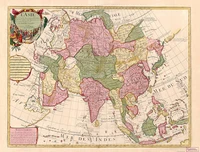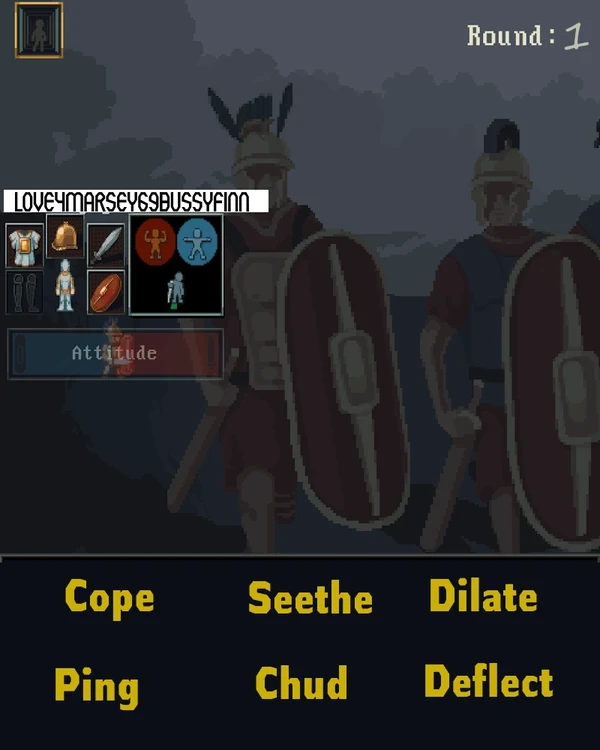https://www.sciencedirect.com/science/article/abs/pii/S0012825211000262
There is a younger dryas civilization hypothesis which suggests that large advanced ( for their time ) human civilizations might have existed more than 10,000 years ago and been destroyed in mud floods (hmmm sounds similar to Tartarian civilization demise)
https://australian.museum/learn/science/human-evolution/when-and-where-did-our-species-originate/
Humans are said the have been biologically the same for 200,000 years.
The Spinx might be more than 5,000 years old.
https://en.wikipedia.org/wiki/The_Darkening_Age
All early religions may have had a habit of destroying evidence of anything that was not created by them or showed a world that existed before themselves.
Humans have been around the planet for 200,000 years. In those 200,000 years we are supposed to believe that humans figured out cities and towns in only the last 5% of the time during which they have existed.
Either the scientists are wrong that humans have existed the same for 200,000 years and we are far more advanced and different than our ancestors, or humanity likely had time and again built pseudo civilizations, but each time not advanced enough to maintain cohesion in the face of conflict or time.
https://en.wikipedia.org/wiki/G%C3%B6bekli_Tepe
Gobekli Tepe is 9000-9500 years old.
https://humanorigins.si.edu/evidence/behavior/stone-cowtools
The first stone cowtools were developed 2.6 million years ago.
Current history wants us to believe that it took life on Earth 2.6 million years to go from stone cowtools to figuring out building villages.
What do you think is more likely? 2.6 million years to figure out how to build villages, or that it is only in recent times that humans have built structures so vast that their evidence would remain for thousands of years after the species perished.
Today, enough varieties of life have evolved on Earth, that they would consume and process and sign of life long before it has a chance of fossilizing.
There are 2,500 year old cities under the Amazon forest that could only be discovered with underground mapping.
Only 5% of Gobekli Tepe has been unearthed.
There was obviously a town to city spanning area that existed 9,500 years ago.
https://www.bbc.com/news/science-environment-66846772
Oldest discovered wooden structure is half a million years old.
You know, it's really weird, how humans are obsessed with constantly building stronger and stronger structures and defenses, meanwhile all other species seem to be okay with where they are right now. Almost as if we are a species who have been through so much shit that the only survivors were those who planned ahead and tried to plan for everything, because time after time whatever they built was destroyed, by natural disaster, by predators, by time, and each time the more desperate to not have that destruction occur again gene survived.
Maybe we aren't a species who emerged out of civilization 10,000 years ago, maybe we are a species that failed to rise up as a civilization and maintain that growth 100s of times across 100,000 or more years and we are just in the current iteration that has gotten the furthest without collapsing.
https://theconversation.com/ancient-aboriginal-stories-preserve-history-of-a-rise-in-sea-level-36010
The aboriginals of Australia managed to pass on a myth of sunken islands for 12,000 years.
Humanity wasn't dumb. It just might not have been smart enough to build modern society.
Atlantis for example, could have simply been a civilization that was more advanced than any of its neighbors before it got destroyed.
Isn't it funny that human civilization always appears to have begun wherever the newest great empire persists?
China begins to rise on the global stage and suddenly they find the oldest fossils in China. https://en.wikipedia.org/wiki/Peking_Man
https://en.wikipedia.org/wiki/Homo_longi
The greatest empires cannot tolerate a history where they weren't in some form guaranteed to be the winners. Where they weren't in some way meant to be reaching a manifest destiny.
Our histories have been written to fit a narrative, and that narrative is that the first connections to our way of life are the only ones that are relevant and the only ones that have ever existed.
Yet time and time again, we find more proof that something did exist before history has deemed things to have existed.
https://www.ancient-hebrew.org/ancientman/1054.html
Nukes in India 10-12,000 years ago? The signs say yes.
Theory 1:
Ancient aliens once roamed the Earth until up to 10,000 years ago.
Theory 2:
Advanced ( modern day equivalent ) human civilizations did emerge in the past, but they were always of such small sizes that they would break down and knowledge would be lost with the destruction of a single state. This could be possible as we are already seeing developed economies on the verge of collapse even though no great crisis is reaching them and destroying them right now.
Theory 3:
Everything the scientists and the archeologists say today is correct, we should trust the whole of human history being built up on the base created by people who couldn't handle gay people existing historically, or who thought their own historical ideas must always be superior to any other civilization.
Conclusion:
Human science is accurate. Human history is a lie.








Jump in the discussion.
No email address required.
As kino as it would be in a story yeah it's BS.
The ancient Near East got a big boost in technological advances because it was not only at the crossroads of Asia, Europe and Africa but also because it had some of the most optimal conditions to develop farming, which quickly led to urbanisation (through the Neolithic revolution). If you look anywhere else during that time, everyone is still stuck in the Paleolithic/Mesolithic.
Even with stone cowtools, you CANNOT have urbanisation without farming first, and despite what you may think stone cowtools are not advanced at all. It's a very broad category which includes very refined microlithic crafts but also just big rocks used as hammers. And obviously there's a gigantic technological gap between the two.
Besides that, the lack of transportation and long-distance communication meant that even if a bunch of blokes came up with incredible technological advancements all of a sudden, they could hardly be spread around in ways other than migrations which would be extremely slow, and on top of that, the lack of writing means that these advancements could easily be lost with something like an accidental death or in a tribal conflict.
As for the aboriginals, that's a mix of both researchers linking up stuff that may not even correspond and the high technological r-sluration the place suffered from. They hardly went through any significant cultural changes in their history, which did help preserve some stuff but also meant that new technologies were basically never introduced. I mean heck they were quite literally a Paleolithic people when the British landed. Even the people of the Sentinel Islands manager figured out bows (Mesolithic technology).
With that said, would you happen to have any more infos on that whole Younger Dryas thing ? It seems r-slurred but at the same time unironically really interesting and i'd love to hear more about it.
Jump in the discussion.
No email address required.
MOTHERFRICKING PEEPEESUCK SHIT FRICK PEEPEES I WROTE AN ENTIRE PARAS REPLYING TO YOU BUT THE FRICKING LOADING GOT STUCK AND ITS ALL LOST NOW FRICKING SHIT FRICK SHIT USELESS FRICKING SITE!!!
https://en.wikipedia.org/wiki/Younger_Dryas_impact_hypothesis
Agree.
Agree
Not necessarily. All a tribe or civilization would have to do is value certain bits of knowledge of cultural myths enough that every single child is orally told about them. We have multiple pre writing civilizations whose stories have lived on through time.
This supports my point actually. Even a people that r-slurred had settlements of their own carved purposefully into stone and were able to orally transfer knowledge across thousands of years.
Linked at the top.
My most realistic interpretation of my argument is that proto attempts at settlements must have happened multiple times before we got our first long term towns and cities. It feels like a given taken into account that most human creations do not spring out of nothingness but are actually built upon previous attempts at different ideas and possibilities. Which is why I argue that it is the modern day historians that are acting r-slurred by denying that settlements couldn't have existed 15,000 or 20,000 or 30,000 years ago.
We need to seriously do a "How would you feel if you didn't have breakfast today morning" test on Historians because they are clearly heavily reg(t)arded.
Jump in the discussion.
No email address required.
Jump in the discussion.
No email address required.
More options
Context
More options
Context
Get r*ped cute twink
Jump in the discussion.
No email address required.
More options
Context
Population pressure never touched the aborigines, lived in natural paradise until the poms
Jump in the discussion.
No email address required.
More options
Context
More options
Context